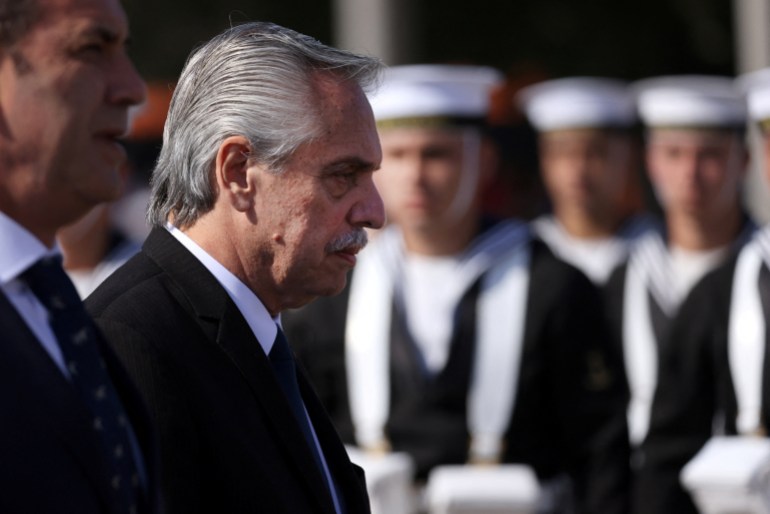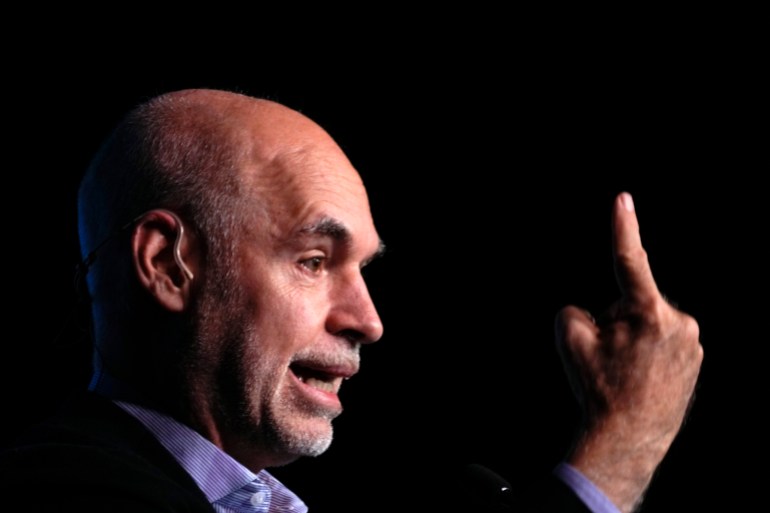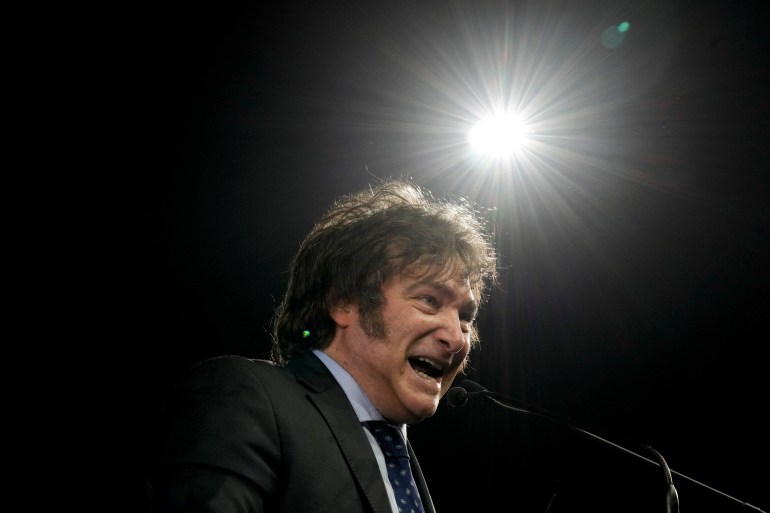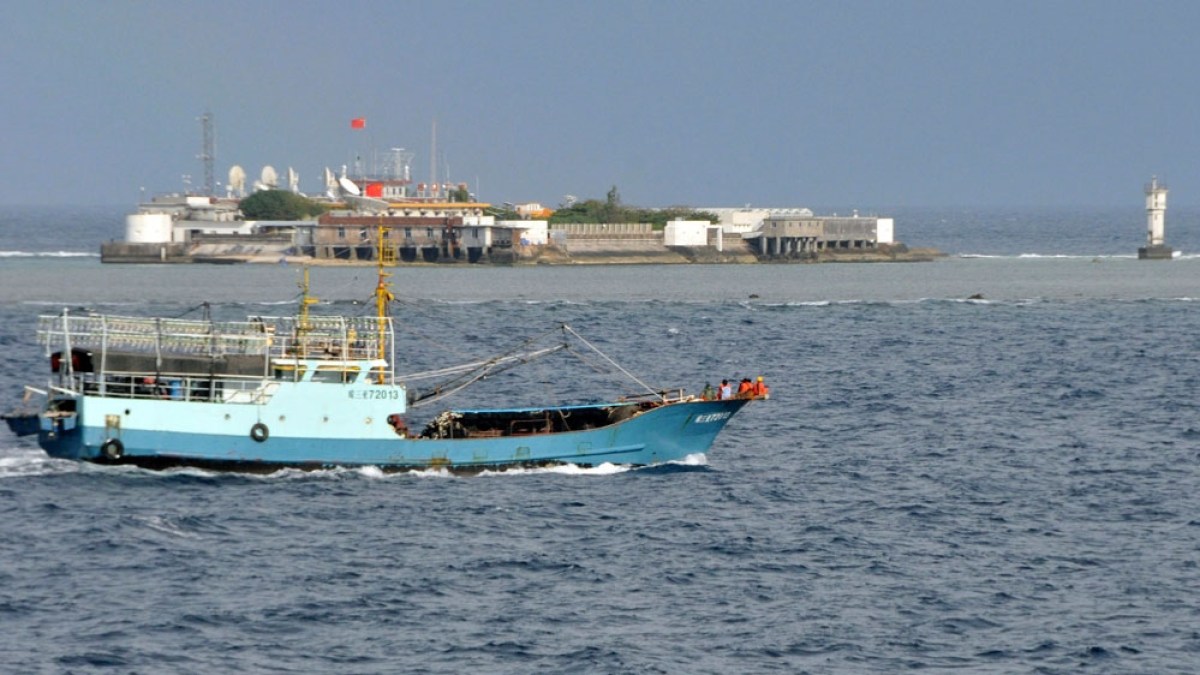Argentinians vote in presidential primary: What to know
Argentina is voting in primary elections that will determine the final candidates for a presidential ballot in October and give a clear gauge on the likely final result as the country battles against a swirling economic crisis.
Polls opened at 8am (11:00 GMT) on Sunday, with results expected to start coming in from 9pm (00:00 GMT).
The primary is obligatory for most adults and each person gets one vote, making it in effect a giant dress rehearsal of the general election in October and giving a clear indication of who is the favourite to take the presidency.
All candidates need a minimum 1.5 percent of the vote to be eligible for the general election.
Outgoing President Alberto Fernandez decided not to run for re-election as he suffers from rock-bottom approval ratings amid annual inflation of more than 100 percent, rising poverty and a rapidly depreciating currency.

Who are the main candidates?
The two main political blocs face internal leadership battles and the vote will determine who will be the presidential candidate in the main center-right opposition coalition in which Buenos Aires Mayor Horacio Rodriguez Larreta is facing off against former Security Minister Patricia Bullrich.
Whoever comes out on top will run against a candidate from the ruling coalition, where Economy Minister Sergio Massa faces a leftist challenger.
The primary will also reveal how much traction right-wing populist candidate Javier Milei has gained with voters. An admirer of former US President Donald Trump, Milei has attracted voters with an anti-establishment message that has particularly resonated with the young.
Sergio Massa: The current Minister of Economy, Massa is the main “unity” candidate for the governing Peronist coalition, now called “Union por la Patria” or “Union for the Homeland” and the distant favourite to win its nomination despite inflation hitting 116 percent and reserves dwindling under his watch.
A pragmatist and deal-maker, Massa, 51, represents the centrist wing of Peronism, Argentina’s main political force for decades, though has a mixed relationship with the powerful left wing of the coalition, despite getting its eventual backing.
Massa is the single most popular candidate in most opinion polls, though his Peronist coalition is overall seen just behind the main conservative opposition bloc, called “Juntos por el Cambio” or “Together for Change”.

Patricia Bullrich: Bullrich, 67, a former security minister, represents the more conservative wing of the centre-right Together for Change coalition. She is pledging tough austerity measures to stabilise the economy and a tough-on-crime law and order approach.
Bullrich, who faces a fight in the primaries against moderate rival Buenos Aires Mayor Horacio Larreta, wants to quickly remove capital controls, cut spending to tackle inflation and lower taxes on farm exports, Argentina’s top economic engine.

Horacio Larreta: Larreta, 57, the two-term mayor of Buenos Aires city, is a moderate voice within the Together for Change coalition and has the backing of several key groups within the bloc. He is competing with Bullrich for the nomination.
A Harvard-educated economist, Larreta is pledging deregulation of markets and to balance the public budget, though prefers a dialogue-led and more gradual approach to avoid sparking off more economic crises.

Javier Milei: With tousled hair, histrionics and regular diatribes against the “thieving” political elite, Milei is the biggest political surprise in recent years in Argentina, being propelled by voters disenchanted with the political status quo.
The 52-year-old economist, who often sports leather jackets and sings rock songs at his boisterous political rallies, has proposed to dollarise the economy, shutter the central bank and eradicate various ministries to shrink the state.

Juan Grabios and Juan Schiaretti: Grabois, 40, a lawyer and labour activist, will compete with Massa for the main Peronist nomination but lags well behind in polls. Schiaretti, 74, a regional governor, is a moderate with ties to Peronism running for a coalition of smaller parties.
Spiralling economy, rise in crime overshadow polls
The primary election campaign was largely dominated by the economy, but crime suddenly took centre stage in the final days of campaigning after the killing of an 11-year-old girl during a snatch-and-grab robbery in a Buenos Aires suburb on Wednesday.
The death of Morena Dominguez in an attack by two motorcycle-riding thieves in the Buenos Aires province district of Lanus, left the country reeling.
There also was outrage in Buenos Aires following the death of a leftist political activist, who suffered a heart attack while being detained by police during a protest on Thursday.
Impact on general election
Regardless of who comes out on top, analysts will be watching closely whether a strong showing by the opposition could suggest an outright victory in October without a runoff.
Milei has been getting nearly one-fifth of the likely vote in opinion polls and winning over voters with a brash, unapologetic style.
“A strong performance by the libertarian candidate would also constitute a surprise and could point to a contested three-candidate race in October,” bank Goldman Sachs said in a note.
Pollsters expect a low turnout, despite a fine for not voting.
“Higher abstention should be expected, perhaps also more blank votes. We have seen warning signs of this in the provincial elections held up to now,” said political analyst Carlos Fara.
“The hardest element to predict is Milei’s performance because he’s a phenomenon outside the political norm.”
Pollsters see the combined Together for Change opposition candidates just ahead of the ruling Peronist bloc, with Milei pulling close to 20 percent. Many, however, admit it’s a hard race to predict. In the 2019 primary, the polls were proved badly wrong.
Whoever wins in October – or more likely in a November runoff – will have major decisions to make on rebuilding depleted foreign reserves, boosting grains exports, reining in inflation and on how to unwind a thicket of currency controls.
The primary can have an economic impact too. Four years ago, an unexpectedly strong showing by now-President Alberto Fernandez led to a sharp depreciation of the currency as markets saw the primary results indicating that business-friendly President Mauricio Macri was on his way out.
The local currency, the Argentine peso, has seen its value plunge in parallel markets ahead of Sunday’s vote. Stringent capital controls mean that access to the official foreign exchange market is extremely limited, so parallel rates have flourished.
Economists will be watching to see signs that the main centre-right opposition could win the presidential election outright and avoid a second-round runoff in November.




